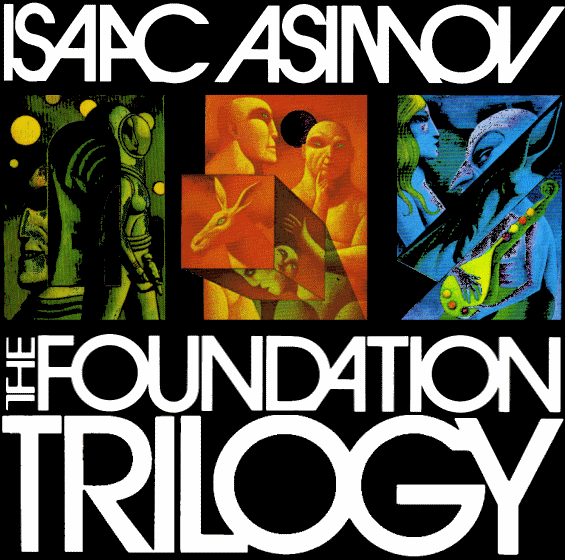Paul Krugman and I have one thing in common: We were both inspired by Isaac Asimov's fantastic sci-fi classic, The Foundation trilogy. the word epic as applied to fiction is often hyperbolic, but not in this case. The story of the Foundation is epic indeed.
Permit me a bit of commercialism: Another of Asimov's classics is The Robots of Dawn, an amazing sci-fi murder mystery that was non-violent in the extreme. Most sci-fi relies on megadeath. After all, there'll be more people and better weapons in the future, so of course the mayhem and death has to be extravagant. Without giving the ending away -- you can't possibly guess from what I say -- The Robots of Dawn, a relatively long book, was a murder mystery without a murder, or a single death, but it's not anything you might think. Just read it.
It inspired me to write The Aliens of Summer, which I self-published, self-promoted, and actually achieved national distribution and okay sales. Not a blockbuster, but something I could be proud of nonetheless. It, too, is sci-fi, and it, too, has no violence or death per se. Thanks, Isaac, for the inspiration. You can purchase copies here at Amazon. Signed by me!
Back to Krugman: He's high on the possibility that we're back to making real technological progress after undergoing a letdown in which information got more plentiful and speedy, but physical progress had lagged. Physical tech is making a comeback:
Over the past five or six years, however — or at least this is how it seems to me — technology has been getting physical again; once again, we’re making progress in the world of things, not just information. And that’s important.
Progress in rocketry is fun to watch, but the really big news is on energy, a field of truly immense disappointment until recently. For decades, unconventional energy technologies kept falling short of expectations, and it seemed as if nothing could end our dependence on oil and coal — bad news in the short run because of the prominence it gave to the Middle East; worse news in the long run because of global warming.
But now we’re witnessing a revolution on multiple fronts. The biggest effects so far have come from fracking, which has ended fears about peak oil and could, if properly regulated, be some help on climate change: Fracked gas is still fossil fuel, but burning it generates a lot less greenhouse emissions than burning coal. The bigger revolution looking forward, however, is in renewable energy, where costs of wind and especially solar have dropped incredibly fast.
Why does this matter? Everyone who isn’t ignorant or a Republican realizes that climate change is by far the biggest threat humanity faces. But how much will we have to sacrifice to meet that threat?I too watched with glee as Elon Musk blasted his Falcon 9 rocket carrying 11 satellites into orbit and safely landed the first booster for reuse. It was spectacular, all the more because an earlier attempt ended in disaster. SpaceX identified the problem and fixed it. Musk delivered. There's more to come.
By the way, a big theme of Krugman's column was the success in renewable energy. Musk is a leader here, too, with his Solar City company -- he's chairman -- and Tesla, which is not only a leader in electric cars but an innovator in battery technology. At this point, much is speculation, as Musk is investing big-time in a megabattery factory in Nevada. Stay tuned.


No comments:
Post a Comment